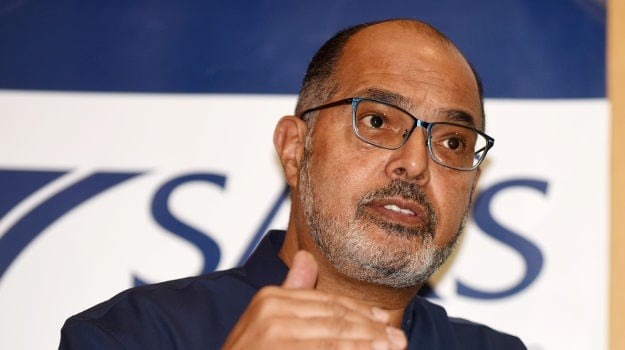
More than R100 billion in state revenue has been lost because of taxpayers who have failed to comply with their tax obligations, those who aggressively avoided taxation and those who openly defrauded the revenue collector.
Edward Kieswetter, the commissioner of the SA Revenue Service (Sars), said that, through its revenue recoupment programme, Sars had collected an additional R75 billion for the state in the financial year ending in March.
He said this on Wednesday when he was announcing the provisional revenue collection figures.
Net tax revenue was R1 356 billion, including refunds of R292 billion.
The revenue figure was R68.2 billion (or 5.3%) more than in the 2018/19 financial year and came amid nominal GDP growth of just more than 4.8%, said Kieswetter.
Nevertheless, the total revenue collected was still R66 billion (or 4.7%) less than the R1 422 billion target that was set in last year’s February budget and 0.2% less than the adjusted target of R1 359 billion budgeted in February this year.
All the figures are provisional and are subject to a financial reconciliation and a final audit.
Kieswetter said revenue collections were weaker than expected in the past few years, largely as a result of poor economic growth.
The latest financial year was no exception and less tax was collected in all tax categories, as had been estimated.
A sum of R582.9 billion in personal income tax was collected. This was an increase of 7.1% over the previous year, but was 4.7% lower than the forecast in last year’s budget.
Personal income tax comprised 39% of the state’s tax revenue. In 2018/19, it made up 38.4%.
VAT – 25.6% of the total income – was 6.7% higher than in the previous financial year, but 3% lower than what was hoped for inFebruary last year.
Read: 1.5m taxpayers have yet to file returns
Company tax of R214.7 billion was collected. That was a small increase of 0.1% on the previous year and 15.8% of the total figure collected.
Revenue collected from companies in the agricultural sector decreased by 13.4%, by 13.9% in the petroleum industry and by 7.3% in the construction industry.
Revenue collection from companies in the mining industry, accommodation and catering industry, and the medical and health industry was, respectively, 10.9%, 9.1% and 5% higher than a year ago, said Sars.
Mining companies’ earnings received a boost from stronger demand, driven by high demand in the iron ore and platinum group metals.
Sars said unreliable electricity provision, stagnant commodity prices and the Covid-19 coronavirus pandemic had affected the profitability of companies.
Kieswetter warned that, as an open economy, South Africa was very sensitive to problems in the world economy.
That, combined with the Covid-19 crisis and Moody’s Investors Service’s decision to downgrade South Africa’s sovereign debt rating to “junk” status, could lead to a decrease in tax revenue collection, Kieswetter said.
Refunds worth R292 billion were paid out during the financial year.
Just more than R232 billion was VAT repayments, R31.4 billion in personal income tax refunds, R19.3 billion to companies and R8.8 billion was diesel repayments.
Kieswetter said that to help businesses with cash during the Covid-19 crisis, Sars made R2.4 billion worth of repayments in the first four days of the national lockdown – R1.1 billion to large businesses and R1.3 billion was to smaller businesses.
Bernard Mofokeng, director and investment expert at the law firm CMS RM Partners, said Covid-19 could seriously hit South Africa’s VAT income and customs collection.
Treasury’s latest tax statistics showed that import VAT and customs made up 13.6% and 4.3% of total tax revenue in 2018/2019.
“Import VAT makes a big contribution to VAT collection and if that declines, it will affect Sars’ VAT collection and, consequently, the state coffers.”
In 2018/2019, Asia was South Africa’s biggest supplier, with 36.1% of the total value of customs collection and about 45% of import VAT. Mofokeng warned that customs and VAT collection on imports could be even lower as the coronavirus spread in Europe. Europe is South Africa’s second-biggest import supplier, with 24.6% of the total value of customs and 35% of import VAT.
It was therefore clear it could make a dent in Sars’ revenue collection and lead to the country being compelled to borrow more money to finance projects.
 | ||||||||||||||||||||||||||
Get in touchCity Press | ||||||||||||||||||||||||||
| ||||||||||||||||||||||||||
| Rise above the clutter | Choose your news | City Press in your inbox | ||||||||||||||||||||||||||
| City Press is an agenda-setting South African news brand that publishes across platforms. Its flagship print edition is distributed on a Sunday. |




 Publications
Publications
 Partners
Partners








